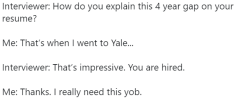I went to school outside of Philly. I feel like a lot of these points WERE addressed either by a formal Health or Gym class or via an AP American History course for the civics type stuff. I did one HomeEc class in 7th or 8th grade that taught us how to see. Never had formal school instruction on "personal accounting." No formal legal instruction but in discussing Bill of Rights thats where I learned about no searches without warrants, etc.
We had (NY state standards)
- mandatory sex Ed in 4th grade (girls) / 5th grade (boys)
-mandatory drug education in 3rd-5th grade
-health 7-10th grade. Sex ed was also covered in these classes among development topics, healthy eating / living, and also drug addictions / diseases.
-Home ec 7-8 grade. Covered cooking, including prep of health foods, and sewing.
-Shop 7-8 grade. I mostly remember this being 90% manually sanding your work.
-Mandatory civics in 12th grade that covered the nuts and bolts of how Congress works, committees, the bill - > law process, including the teacher helping everyone register to vote who was 18 by the end of the year.
-Mandatory introduction to economics in 12th grade.
It's hard to fathom that these don't get taught in most states. Then there were the optional things: stock investment club and a criminal justice class. I'd argue that our schools spend too much time on this stuff considering I usually can't get an Ensign who can spell or write complete sentences.
The only thing that remains is how to balance a check book, and I'm not sure that warrants an entire class. I learned that from my great grandmother (lived through the great depression) showing me how she budgeted the household finances into envelopes in 20 minutes one day and warning me to stay away from credit cards. She also helped me open my first savings account at around 10 years old.
I think that it really comes down to my economics teacher motto: 'you're going to forget 85% of what I taught you by the end of the summer.'

